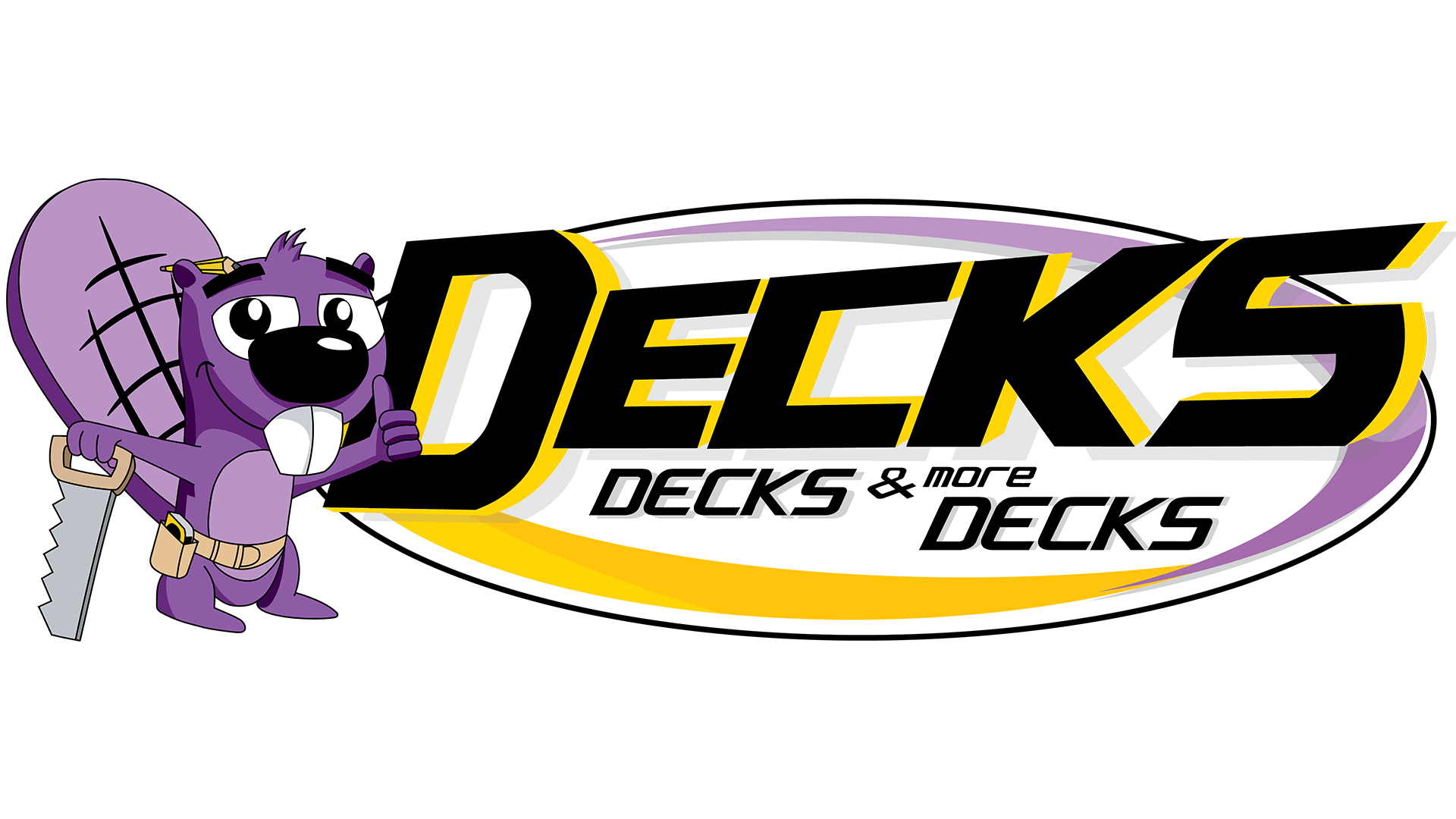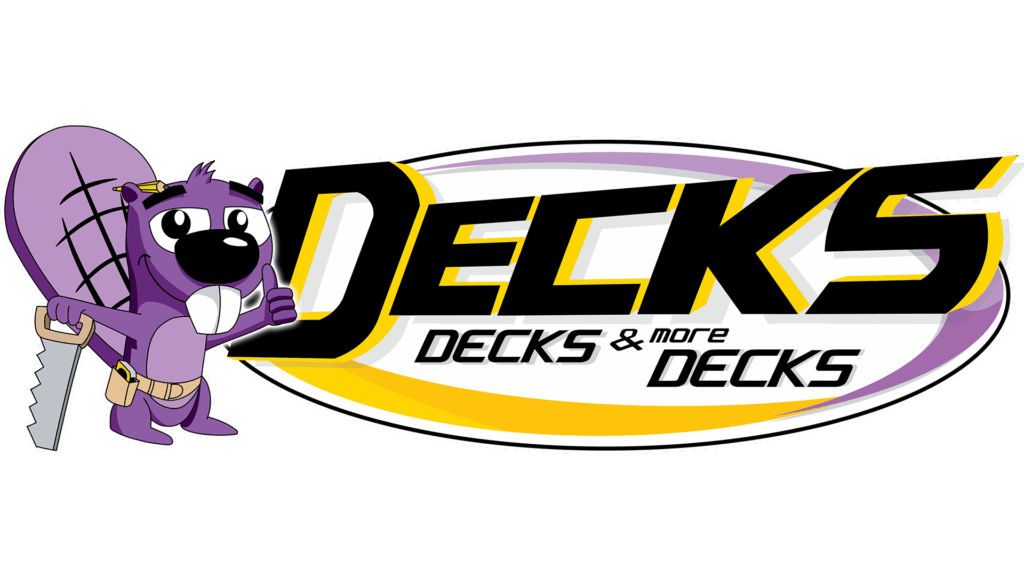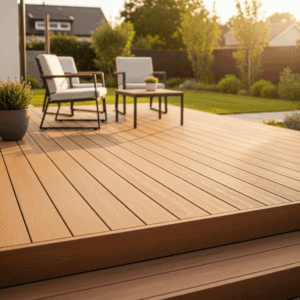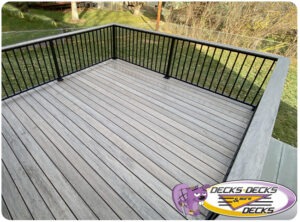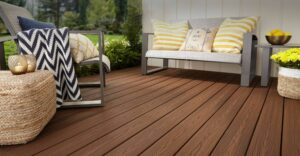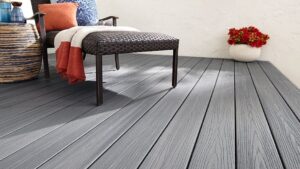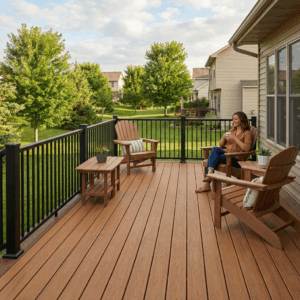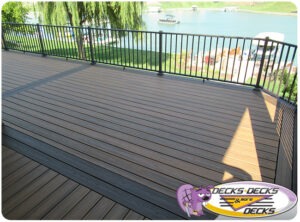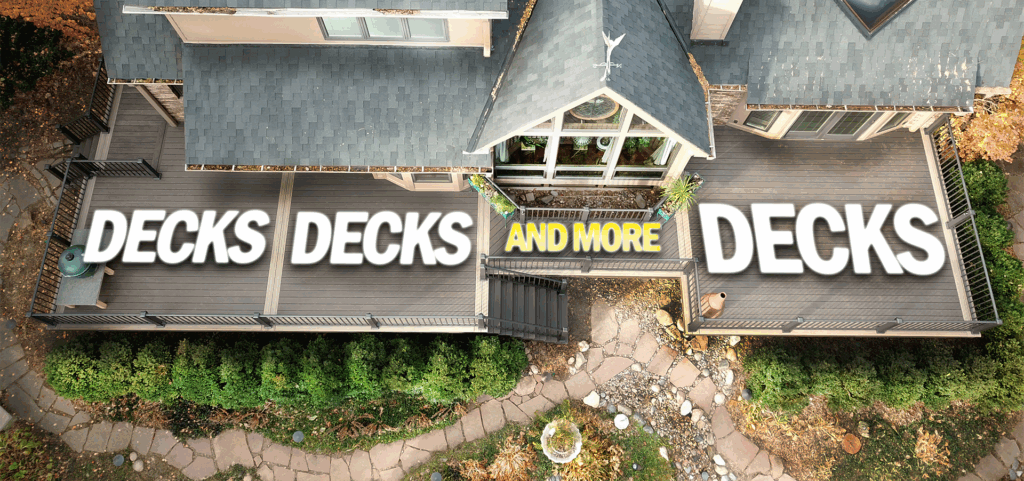Trex vs TimberTech in Nebraska Winters: Freeze-Thaw, Traction & Warranty Compared
When Nebraska winters hit, your deck takes the full force of the freeze-thaw cycle — snow, ice, salt, and the occasional 60° day that turns everything to slush. If you’re deciding between Trex and TimberTech, you’re probably wondering which one holds up best when the temperature drops.
As Omaha’s only Platinum Contractor for both Trex and TimberTech, Decks, Decks & More Decks has seen firsthand how these materials perform through decades of Midwest winters. Let’s break down the differences that matter most for homeowners.
1. Freeze-Thaw Durability
Both brands are built to handle extreme temperature swings, but their core construction is slightly different:
-
Trex: Uses a wood-plastic composite core that’s capped on three sides. It resists moisture well, but the core can still expand slightly with freeze-thaw changes.
-
TimberTech (Azek line): Made from 100% PVC, meaning it absorbs virtually no moisture and remains dimensionally stable even in repeated freezing and thawing.
2. Snow & Ice Traction
Slippery decks are a winter hazard, especially when snow melts and refreezes.
-
Trex Transcend: Has a more pronounced wood-grain texture that improves grip even when wet.
-
TimberTech Advanced PVC: Slightly smoother surface but engineered with embossed grain for traction. TimberTech’s “Landmark” series, in particular, offers excellent slip resistance.
Pro Tip: Add matte or grooved finishes if you expect high foot traffic in icy conditions.
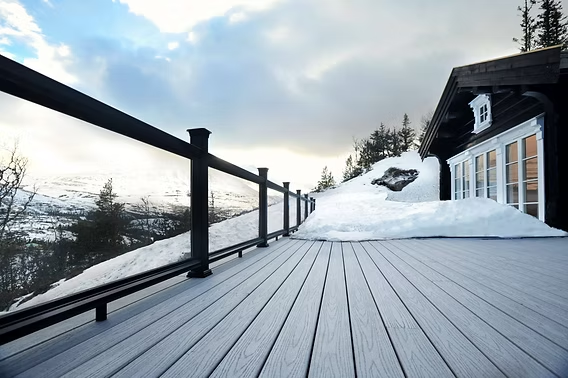
3. Color Fade & Cold Cracking
Nebraska winters bring more than snow — UV rays still hit hard on clear, cold days.
-
Trex: The composite cap helps prevent fading but can slightly dull after years of UV exposure.
-
TimberTech: Uses advanced fade-resistant pigments and is less likely to crack in subzero weather due to its PVC flexibility.
4. Maintenance in Cold Months
Both Trex and TimberTech are considered low-maintenance, but winter cleanup can differ:
-
Trex: Brush off snow with a plastic shovel — avoid salt or metal edges.
-
TimberTech: Can handle calcium chloride ice melt without damage, a plus for families needing safe steps.
5. Warranty & Long-Term Value
Both brands offer long-term protection — but it depends on which series you choose.
| Brand | Fade & Stain Warranty | Structural Warranty | Notable Coverage |
|---|---|---|---|
| Trex Transcend | 25 Years | 25 Years | Covers residential freeze-thaw cracking |
| TimberTech Azek | 50 Years | Lifetime | Includes moisture and weathering protection |
6. Which One Do We Recommend for Nebraska Winters?
For most homeowners, it comes down to this:
-
Trex: Great balance of price and performance; ideal for covered or partially shaded decks.
-
TimberTech: The premium choice for open, exposed decks that face the full brunt of Nebraska weather.
At Decks, Decks & More Decks, we install both — and we’ll help you choose based on your home’s layout, sunlight, and snow exposure.
Final Thoughts
When you’re investing in a deck meant to last through decades of Omaha winters, material choice matters. Whether you lean toward Trex’s classic strength or TimberTech’s advanced PVC, both offer beauty, safety, and longevity that far exceed wood.
Ready to compare samples in person?
Visit our Papillion showroom or call (402) 690-1050 to explore real deck boards in our climate-controlled display area.
 free estimates: (402) 690-1050
free estimates: (402) 690-1050